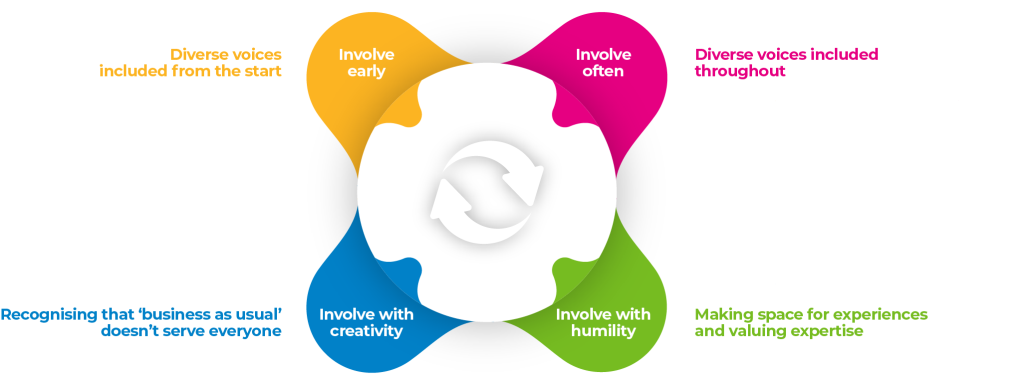In the same month as the United Nation’s ‘World Day for Promoting Cultural Diversity for Dialogue and Development’ took place, the first ever EDIRA (Equality, Diversity, and Inclusive Research Association) conference was born in Cardiff! The conference, organised by Dr Sondra Butterworth and her team at RareQOL, and hosted alongside Dr Andrew Mitchell from the University of Chester, brought together patients, communities, researchers, policy makers, and practitioners within the health and social care space to explore what inclusion in research truly means and how we get there.
We heard from both experts by profession and experts by experience — people from rare disease and diverse communities — on best practices for engaging with diverse communities to create a more inclusive research framework.
The conference involved discussions and interactive sessions between different communities to learn how we can overcome some of the top barriers to inclusion in research and community practice.
“It’s time to change.”
– Dr Sondra Butterworth, founder of EDIRA
Overcoming barriers to inclusion: Key learnings
Inclusive research is not a ‘one-size-fits-all’ approach.
We must adapt our approach to research and community outreach based on the varying needs of diverse communities. Dr Edward Oloidi noted that although unconscious bias in the work of researchers is most often not intentional, using a one-size-fits-all approach excludes people by design. For each community of interest, we must consider WHAT questions we ask and information we share, WHO we engage with, HOW we engage with people, and WHY people should take part to create an accessible and inclusive approach to research participation.
“If we change the way we ask the question, we might get a different outcome.“
– Dr Emma Lane
Work with trusted leaders and advocates.
The relationship between researchers and people ‘being researched’ can either enhance the opportunity for inclusion, or it can take it away. Building trust and relationships first is key to establishing a positive approach to engagement. Hannah Stark shared how the NIHR Bioresource is partnering with community leaders to understand what questions need to be asked, and how they should be addressed, when it comes to increasing participation in research. Collaborating with trusted community leaders and advocates can help to bridge the gap between researchers and communities to allow for more inclusive engagement and better access to opportunities to share information.
“True inclusion requires breaking down barriers – not just asking people to step over them.”
– Dr Natasha Ratcliffe
Include people from design to dissemination.
Partnering with people from a diverse range of communities is essential for designing inclusive research. Dr Natasha Ratcliffe spoke about the importance of designing research with people from diverse communities from the very start, ensuring that people are involved in the process often, and involving them with humility and creativity.
“Research must happen with communities, not on them”
– Dr Edward Oloidi

Build cultural competence.
Researchers must seek out knowledge about different cultures by actively listening to the lived experiences of people from diverse communities. Professor Basma Ellahi explained in her panel talk that researchers must also consider how the wider context of structural social processes and multiple parts of a person’s identity intersect to affect participation in research — including race or ethnicity, religion, gender, income, education, location, disability, and beyond.
“Equity is about treating people according to their needs and circumstances to enable everyone to reach their full potential.”
– Dr Andrew Mitchell
Inclusive communication goes beyond translated documents.
The availability of written or oral translations can reduce language barriers, but if not done with care it also has potential to increase barriers. Hazel Kim, founder of the Chinese Autism Support Group, shared the challenge that a lot of terms commonly used to describe autism in the English language don’t exist in Chinese languages, which can lead to inaccurate interpretations which further stigma. Translators need to be aware of these cultural differences.
“Translations are not a simple solution or necessarily the answer.”
– Professor Basma Ellahi
